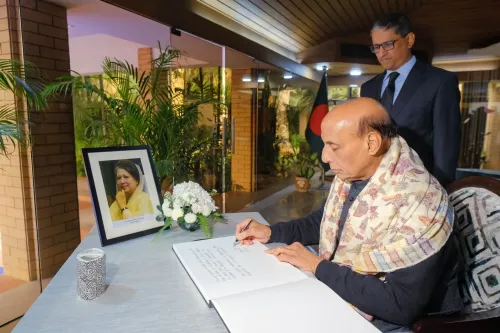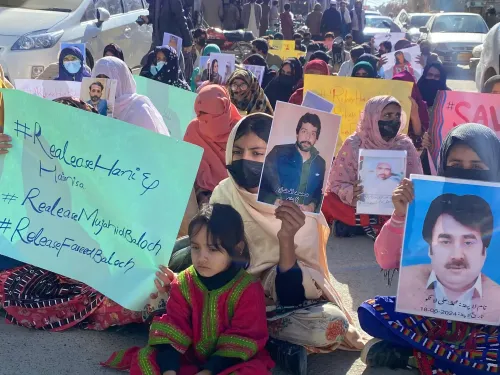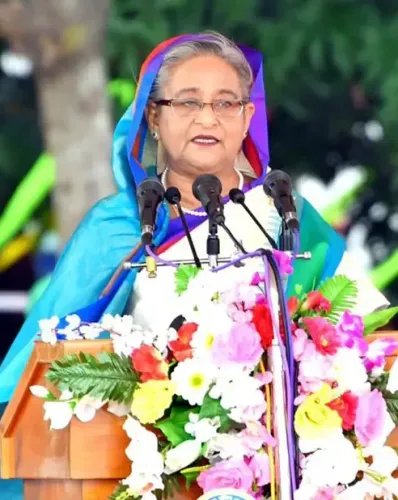How Are Global Experts Collaborating in Namibia to Combat Climate Change and Disaster Risk?

Synopsis
Key Takeaways
- Community-driven strategies are essential for tackling climate change.
- International collaboration can lead to innovative solutions.
- Local involvement in risk assessment enhances resilience.
- Namibia is committed to reducing climate vulnerability.
- Investment in research and technology is crucial for disaster management.
Windhoek, Oct. 29 (NationPress) On Wednesday, Namibia inaugurated a summit dedicated to formulating innovative, community-based approaches to address the rising threats of climate change and disaster risks throughout Africa.
The three-day Climate Change and Futures in Africa Conference Series 2025, featuring international authorities in climate science, disaster risk mitigation, and policy-making, aims to exchange knowledge and investigate groundbreaking solutions. The event was officially launched in Windhoek by Namibian Prime Minister Elijah Ngurare, under the theme “Risk in Time and Space.”
This year's summit underscored the importance of community-based participatory research, which empowers local populations to take an active role in evaluating risks and making decisions, as reported by Xinhua News Agency.
In his keynote address, Ngurare highlighted that climate change is no longer a “theoretical or distant phenomenon,” but a daily challenge endangering livelihoods, food security, and infrastructure across Africa.
“The realities of climate change and disaster risks continue to challenge the resilience of nations, communities, and ecosystems,” he remarked.
Ngurare pointed out that Namibia is one of the nations most severely impacted by disasters, primarily due to its arid climate and erratic rainfall.
“Given the scale and repercussions of disasters here, disaster management is a governmental priority, with every local authority and region expected to contribute,” he stated.
He also reiterated the government's commitment to enhancing climate resilience as outlined in the Sixth National Development Plan (NDP6). “One of our goals in NDP6 is to decrease the number of individuals living in areas vulnerable to climate change from the current 979,786 to 500,000 by 2030,” he added.
Ngurare urged participants to embrace the theme of this year's International Day for Disaster Risk Reduction: “Fund Resilience, Not Disasters,” emphasizing the necessity of investing in research, science, technology, and innovation.
The summit is a collaborative effort organized by the Human Sciences Research Council of South Africa in partnership with Namibia's National Commission on Research, Science and Technology.










